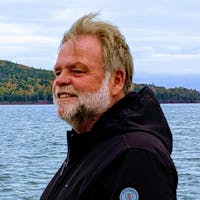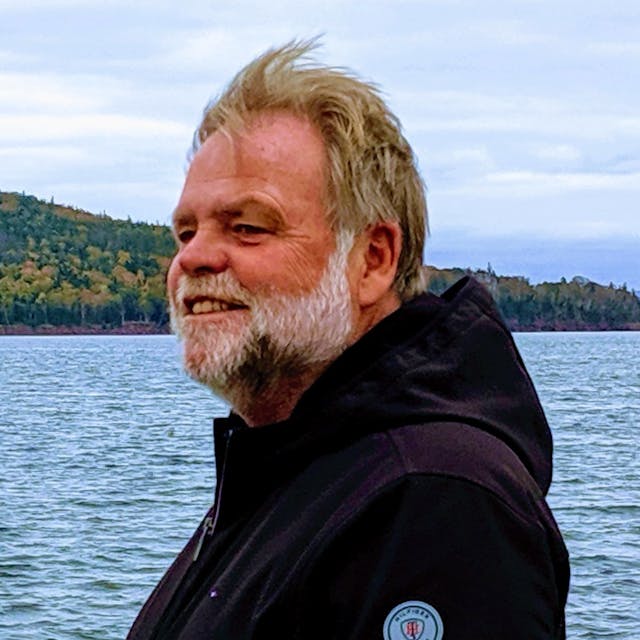Answering The Call
6 min read

Wisdom from Rabbi Hillel

by Bruce G. Epperly, Ph.D.
Rabbi Hillel, an older contemporary of Jesus, is known for his wise counsel. Over the years, and especially now as a member of the Medicare generation, Hillel’s words invite me to join self-care and self-affirmation with care and affirmation of others.
If I’m not for myself – who will be?
If I’m only for myself – what am I?
If not now – when?
These words seem appropriate for Pentecost, the season of giftedness, in which are invited to let our light shine, and nurture our gifts as well as the gifts of others. As we ponder our gifts I retirement, Hillel reminds us “If I’m not for myself…” In retirement, or semi-retirement, we let go of some of our familiar anchors: title, place in the community, daily schedule, and familiar places to go. It may take a while to establish new rhythms and roles and to develop new gifts. But, we have gifts to bring joy to ourselves and add to our communities. We must be for ourselves in taking the time we need to explore new possibilities or familiar roles in new ways. We must learn the importance of “saying no to say yes” and “saying yes while saying no” to certain invitations and opportunities. Without feeling guilty, we need to claim time and space to grow in new ways apart from others’ expectations. We may struggle to define our new schedule and learning goals, but when we discover our light, we can be lights to the world.
“If I’m only for myself…”
While many of us feel selfish when we take time for self-nurture or self-development, we need to find the balance between self-affirmation and world-loyalty, for honoring our needs and desires and making ourselves available to the community. While I am busy with writing and occasional seminary teaching and supply preaching, my day-to-day schedule is flexible, and often solely defined by my foci in conversation with my wife and son and daughter-in-law. Discerning our day-to-day schedule with no mandated activities can be both liberating and unsettling. It can also give birth to a sense of spaciousness that allows us to respond to others’ needs or the challenges of the larger community.
We must be for others, near and far. We need to be intentional in balancing our self-affirmation and our availability and affirmation of others. Having a sense of abundant life along with the recognition that many of our scheduled activities are “optional,” and can be rescheduled, to respond to others’ needs, gives us the sense that we can go with the flow of providence and be available to friends and family, sometimes at the drop of a hat. We need to look beyond the immediate moment and environment. While we may not be as energetic as we once were, we can mine our energy for involvement in service to the community and in ensuring that others flourish. We can protest and pray.
“If not now…”
“If not now…” At this point in life, we are reminded regularly that we don’t have all the time in the world. We may, if we are fortunate, be able to hope for being able to number our Christmases on both hands with a few fingers to spare. Still, the finitude of time cannot be denied. This can be a source of anxiety and it can also be a source of opportunity. Mary Oliver asks each of us, “What is it that you plan to do with your one wild and precious life?” echoing the Psalmist’s affirmation, “This is the day that God has made. Let us rejoice and be glad in it.” Without adding to the stress of life, we still can embrace “the fierce urgency of now,” knowing that we can’t put off opportunities to grow, nurture our health, share our love, and get involved in changing the world. In this holy moment, we can rejoice in our lives, enjoy a walk, a good meal, a day of reading, beach combing, or caring for our grandchildren. We can delight in birds waking the world with their songs and commit ourselves to playing our part as peacemakers by contacting our representatives or participating in a protest. Plato once noted that “time is the moving image of eternity,” and each moment can share in God’s everlasting life and shape the lives of people we’ll never me.
It all comes down to the right blend of self-affirmation (self-interest) and world loyalty, of growing our stature to see others’ well-being as part of our own. Let us listen to the wisdom of Rabbi Hillel. Let us seek to live fully: growing personally and spiritually, caring for others, and living in this holy moment.
You are the light of the world. You are gifted. Let you light shine. Glorify God and bring joy and healing to your world this holy and wondrous day.

Speak with a Licensed Professional Counselor or Work/Life Specialist.
Get help managing your emotions during stressful situations by contacting HealthAdvocate, and speaking with a Licensed Professional Counselor or Work/Life Specialist through their Member Assistance Program by calling 1.877.240.6863.

by Rev. Bruce G. Epperly, Ph.D.
Bruce Epperly is a theologian, pastor, and author of over eighty books, including “The Jubilee Years: Embracing Clergy Retirement,” “101 Soul Seeds for a Joyful Retirement,” and “Jesus: Mystic, Healer, and Prophet.” He may be reached at drbruceepperly@gmail.com.
RELATED ARTICLES
Spiritual Decluttering as a Lenten Discipline
